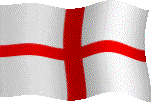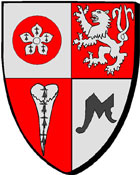Encyclopédie Marikavel-Jean-Claude-EVEN/Encyclopaedia/Enciclopedia/Enzyklopädie/egkuklopaideia

England Bro-Saoz |

Leicestershire Bro Leir |
|
Witherley contenant le site Mancetter, ancien établissement Manduessedum |
![]()
| page ouverte le 02. 02 2008 | forum de discussion
* forum du site Marikavel : Academia Celtica |
dernière mise à jour 02/06/2012 17:32:42 |
![]()
|
Définition : ville d'Angleterre; comté de Leicestershire, sur la rivière ***
|
|
![]()
|
i
Extrait de Ordnance Survey : Map of Roman Britain Mancetter / Manduessedum est figurée par le point rouge |
![]()
|
Histoire : |
![]()
|
Étymologie : * Rivet & Smith, p 411-412 : SOURCE - AI 4703 (Iter II) : MANDUESEDO, var. MANDUESSEDO DERIVATION. The name is composed of British *mandu- 'small horse, pony' and *essedo- ' war-chariot' (perhaps also 'cart'). The first element was well known in antiquity. Gaulish *mandu-s or (with assimilation, perhaps dialectal, which did not occur in British until the late fifth century : LHEB 512-13) *mannus was early taken into Latin, as were other Gaulish terms relating to horses, and is first recorded in Lucretius III, 1063 (mannus). See Burn, 1969, p. 106. According to Hubschmid in ELH I. 143 *mandu- is probably Illyrian in origin, and related to other words meaning 'horse, mule; sterile'. The element is found in such Personal names as Mandubracius, chief of the Trinovantes, and Cartimandua, queen of the Brigantes; in the Gaulish ethnicon Viromandui (> Vermandois) around Saint-Quentin (Aisne, France), and in a number of place-names such as Epamanduodurum (> Mandeure, Doubs, France); see Holder II 409 (with an erroneous sense for *mandu-) and GPN 222-23. The second element, *essedo-, was also borrowed early from Gaulish into Latin. There are several mentions in Caesar of the esseda 'chariots' and essedarii 'charioteers', elsewhere in his text equated with currus and auriga respectively; also in Virgil and Suetonius. This element is found in Tarvessedum AI 2785 'bull-cart' (near Lake Como in N. Italy). The root is *sed- 'sit' (Welsh sedd 'scat'; Latin sedeo, English sit, etc. ; compare -sessa in CAMULOSESSA), as in the ethnicon Coriosedenses and place-names Metlosedum (> Melun, Seine-et-Marne, France), Sidoloucum ( > Saulieu, Côte-d'Or, France), etc. See Holder II. 1433, GPN 253-54. Jackson in Britannia, I (1970), 76, finds the application of a sense 'horse-chariot' to a place obscure, but compares Marcotaxum in Scotland and suggests that some local legend may be involved. The first part of the ancient name survives in that of modem Mancetter. IDENTIFICATION. The roman settlement at Mancetter, Witherley, Leicestershire (SP 3296). ***** * Eilet Ekwall (1936-1980) : ***** * A.D Mills (1991 - 2003) : ***** JCE : *****
Formes bretonnes anciennes : - Nennius : - Geoffroy de Monmouth : - Jésus Collège : |
![]()
|
Sources : - Eilert EKWALL * ALF RIVET & Colin SMITH : The Place-names of Roman Britain. Batsford Ltd. 1979 - 1982 - A.D MILLS : Oxford Dictionary of British Place Names. Oxford University Press. 1991 - 2003. - envoi de : Leicestershire Libraries & Information Service; 19.07.1982 - contribution (in memoriam, 2001) du Père Thuriaw - Le Mentec en ce qui concerne l'évolution possible du nom vers le breton moderne. |
![]()
|
Liens électroniques des sites Internet traitant de Wytherley - Mancetter / Manduessedum : * lien communal : * forum du site Marikavel : Academia Celtica hast buan, ma mignonig go fast, my little friend |
![]()